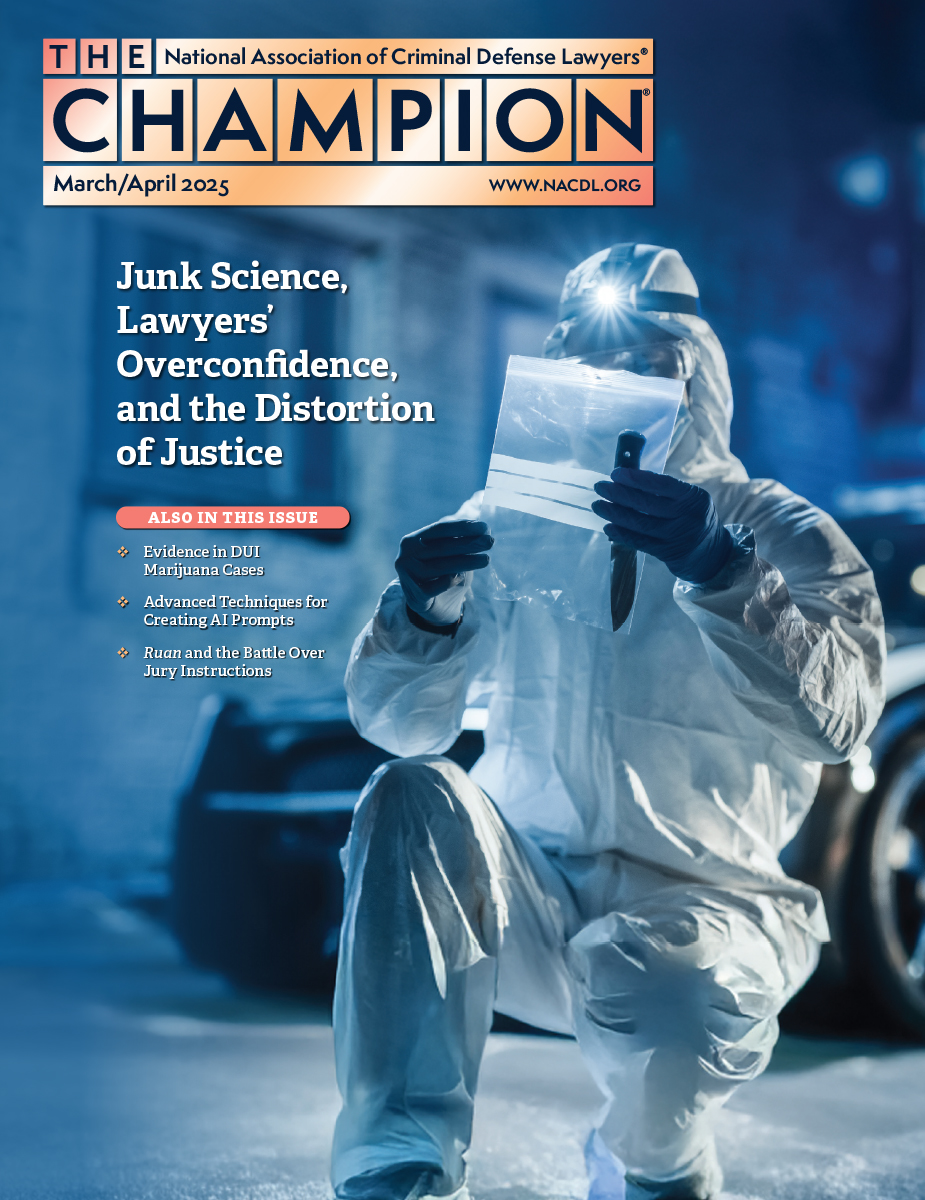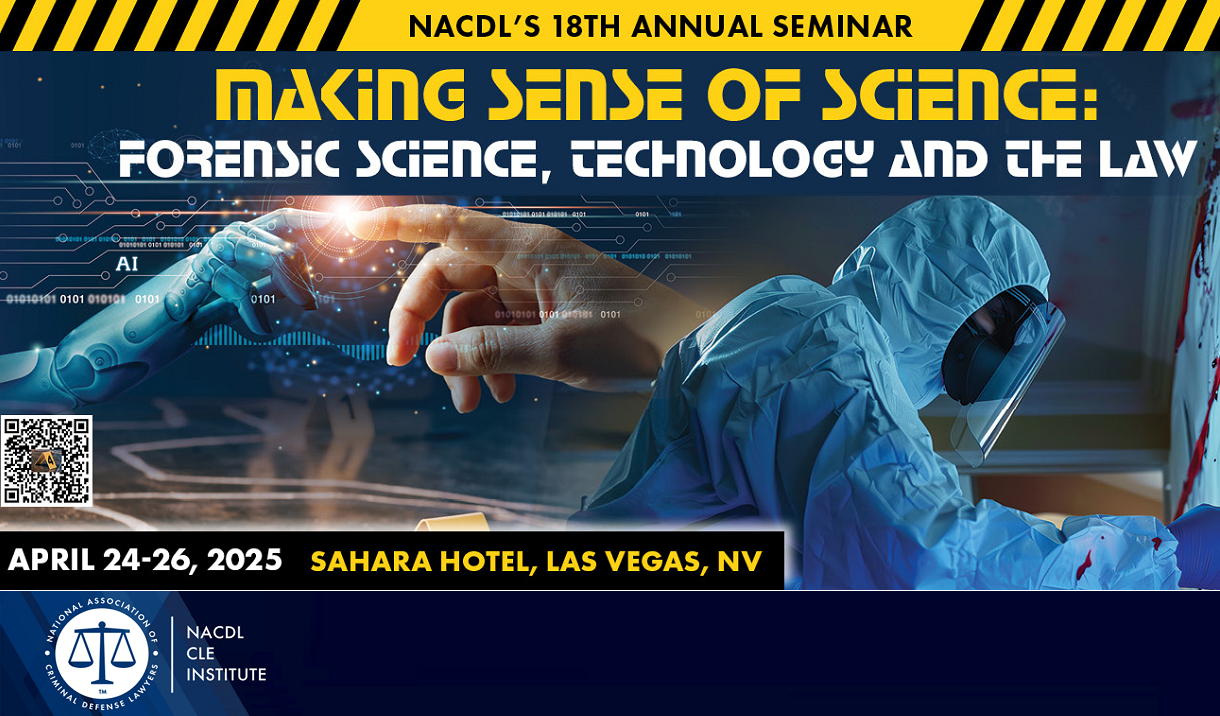Clients, not Cases: Skills for Outstanding Representation
(Seattle, WA, June 26-27, 2015)
The name of the program, "Clients, not Cases," was designed to remind attorneys that each client is an individual who deserves to be treated with respect and to have his case given the attention that any one of us would want. The program addressed essential client-centered representation tasks required in every case, regardless of whether the matter ultimately ends in plea or trial. Taught by excellent nationally-recognized faculty and local Washington practitioners, attorneys learned how to build a solid attorney/client relationship; how to address issues of race in the criminal justice system; how to identify and advise clients regarding collateral consequences; how to deal with clients with mental health issues; how to investigate and prepare a case for trial, plea, and sentencing; new strategies for negotiation in a criminal case; and how to be an effective advocate at all stages. Interactive lectures and small group breakouts fostered experiential learning and helped attorneys build their local networks for future collaboration.
Topics and selected materials for the program:
- What a Difference a Good Lawyer Makes: The Client’s Perspective: Convicted and incarcerated as a teenager, Gerald Hankerson was granted clemency in 2009 and has since become the president of the Seattle King County chapter of the NAACP. Hankerson’s keynote lecture highlighted the ways that a strong attorney-advocate can change the trajectory of a life.
- Faculty: Gerald Hankerson
- Instruction Time: 30 min.
- Materials:
- Click here to view the video recording of this training session.
- Race in the Criminal Justice System: Jeff Robinson, Seattle attorney and soon-to-be director of The Center for Justice of the national American Civil Liberties Union (ACLU) in New York City discussed the role that race plays in the criminal justice system and provide participants with strategies to raise racial issues. Topics included racial profiling, demographic disparities in the justice system, and implicit bias.
- Faculty: Jeff Robinson
- Instruction Time: 90 min.
- Materials:
- The video recording of this training session is unavailable.
- Client Interviewing and Relationship-Building: Deja Vishny discussed strategies for building a strong attorney-client relationship, including our responsibility to our clients; how can we communicate with our clients effectively; important communication tools; approaches during the first meeting; and how to turn a client interview into a compelling story.
- Faculty: Deja Vishny
- Instruction Time: 60 min.
- Materials:
- The Storytelling Method of Direct (pdf) by Deja Vishny
- PowerPoint (pdf)
- Click here to view the video recording of this training session.
- Small group workshops on client interview and communication skills: Attorneys broke into small groups led by national and local faculty to work on client interview skills. Working in pairs, participants used two hypothetical case problems to simulate a client interview, with each participant having the opportunity to play the role of the attorney in one scenario and the client in the other. Afterwards, small groups discussed what information they uncovered, what they missed, and strategies for getting the most out of the client interview.
- Instruction Time: 90 min.
- Materials:
- The video recording of this training session is unavailable.
- Collateral Consequences of Criminal Convictions: Travis Stearns discussed why criminal defense attorneys need to understand collateral consequences; identifying relevant collateral consequences; specific collateral consequences issues; and avoiding, mitigating, or getting relief from collateral consequences.
- Faculty: Travis Stearns
- Instruction Time: 60 min.
- Materials:
- PowerPoint (pdf)
- The video recording of this training session is unavailable.
- Mental Health: Colette Tvedt addressed how to recognize clients’ potential mental health issues, working with experts, and using mental health issues in mitigation discussions with prosecutors, judges, and juries.
- Faculty: Colette Tvedt
- Instruction Time: 60 min.
- Materials:
- Battered Women's Negotiation Letter (pdf) Colette Tvedt
- Veteran's Court Negotiation Letter (pdf) Colette Tvedt
- PowerPoint (pdf)
- The video recording of this training session is unavailable.
- Brainstorming, Issue spotting, and Investigation: Attorney Ben Goldsmith discussed investigation and case preparation, including issues of the case; development of a theory and theme; what to investigate; and how to investigate. He also lead a large group brainstorming of one or more of the hypothetical case problems used in the small group workshops on client interview.
- Faculty: Ben Goldsmith
- Instruction Time: 90 min.
- Materials:
- PowerPoint (pdf)
- Click here to view the video recording of this training session.
- Thoughtful Negotiation: Nationally-recognized lecturer Keith Belzer discussed negotiation styles; moving from position based negotiation to interest based negotiation; and practical tips for negotiation.
- Faculty: Keith Belzer
- Instruction Time: 90 min.
- Materials:
- Principles of Negotiation Outline (pdf) by Keith Belzer
- Advanced Negotiation Theories Outline (pdf) by Keith Belzer
- Negotiation Preparation Worksheet (pdf) by Keith Belzer
- The video recording of this training session is unavailable.
- Sentencing mitigation: Jeff Sherr will endeavor to answer the question, “What is mitigation and how to I get anyone to care about it?” This session will explore techniques for influencing decision makers (prosecutors, judges, juries and others) to recognize the need for a solution that is least restrictive for our clients.
- Faculty: Jeff Sherr
- Instruction Time: 60 min.
- Materials:
- Click here to view the video recording of this training session.
- Small group workshops on sentencing advocacy: Participants worked in small groups using the hypothetical client backgrounds from the client interview workshops to discuss potential sentencing alternatives and craft a sentencing presentation.
- Instruction Time: 60 min.
- Materials:
- The video recording of this training session is unavailable.
- Works Well with Others: Community organizer Raj Jayadev discussed how to leverage a defendant’s family and community to gain information and humanize a client, with a particular focus on the creation of sentencing videos.
- Faculty: Raj Jayadev
- Instruction Time: 75 min.
- Materials:
- Participatory Defense - Transforming the Courts through Family and Community Organizing (pdf) by Raj Jayadev
- Make Them Hear You: Participatory Defense and the Struggle for Criminal Justice Reform (pdf) by Janet Moore, Marla Sandys, and Raj Jayadev
- The video recording of this training session is unavailable.
- Additional Materials from this Training:
- Experts - Preparing an Expert to Testify (pdf) by Keith Belzer
- Preparing your Client for Direct Examination in Sexual Assault and Child Abuse Cases (pdf) by Keith Belzer
For the full program description, agenda, and faculty profiles in pdf format, click here.
This webpage is funded in part through a grant from the Bureau of Justice Assistance, Office of Justice Programs, U.S. Department of Justice. Neither the U.S. Department of Justice nor any of its components operate, control, are responsible for, or necessarily endorse, this webpage (including, without limitation, its content, technical infrastructure, and policies, and any services or tools provided).












